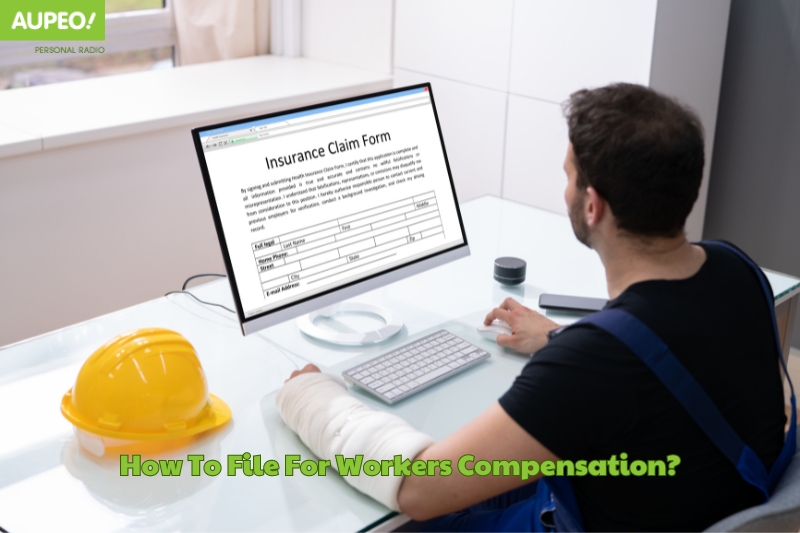Hey there! Need to file for workers compensation but not sure where to start? You’re in the right place! Aupeo.com has got you covered with a straightforward guide to help you through the process hassle-free.
Contents
- 1 Understand How to Initiate a Workers Comp Claim
- 2 Determine What Injuries Are Covered by Workers’ Compensation
- 3 Learn the Process After Filing a Workers Comp Claim
- 4 Gather Necessary Documentation for a Workers Compensation Claim
- 5 Know Your Legal Rights and Protections Under Workers Compensation
- 6 Conclusion
Understand How to Initiate a Workers Comp Claim
When you find yourself in an unfortunate situation at work resulting in injury or illness, it’s crucial to act swiftly. Notify your employer within 30 days of the incident to ensure you meet the initial requirements for filing a claim. It’s not just about letting them know; it’s about starting the paperwork trail.
Following that, you’ll need to file Form C-3 with the Board within two years of the incident. This form is your formal request for compensation, and getting it right can significantly affect your claim’s success.
The link to download Form CA-3: https://saaal0195-apwu.org/wp-content/uploads/2018/05/CA-3-Termination-of-Disability-or-Payment.pdf
Determine What Injuries Are Covered by Workers’ Compensation
Navigating the complexities of what’s covered under workers comp can be tricky. You’ll want to track your claim through platforms like eCase, which allow you to view the status of your claim and ensure all your documents are processed correctly.
Remember, workers comp doesn’t just cover physical injuries; psychological injuries are also considered, especially if they stem from workplace incidents. Knowing the full extent of what’s covered can help you better document your case and gather the necessary evidence.
Learn the Process After Filing a Workers Comp Claim

Once you’ve filed your claim, knowing the next steps is crucial. You can submit the Employee Claim (Form C-3) online, which is often the fastest method.
However, if you prefer traditional methods or lack internet access, download, complete, and mail Form C-3.
Alternatively, you might want to file in person at the nearest Workers’ Compensation Board Office. Each method has its nuances, and choosing the right one can depend on your circumstances.
Gather Necessary Documentation for a Workers Compensation Claim
When preparing to file a workers compensation claim, compiling the right documentation is key. You’ll need medical reports which act as the cornerstone of your claim, detailing the extent and nature of your injury along with the necessary treatments.
Additionally, gathering documentation of work-related activities at the time of injury is crucial. This documentation helps establish the connection between your injury and your workplace, reinforcing your claim.
Know Your Legal Rights and Protections Under Workers Compensation
Understanding your legal rights is fundamental when navigating workers comp claims. If you’ve had a repeat injury or illness, particularly if it’s the same part of the body as before or a similar kind of illness, you need to file a Limited Release of Health Information (Form C-3.3).
This form is essential for documenting the continuity and specifics of workplace injuries, ensuring your rights and optimal coverage for small businesses are protected throughout the process.
Conclusion
There you have it! Filing for basics of workers compensation is easier than you think with Aupeo.com by your side. Stay informed, stay empowered, and let’s tackle this together!

